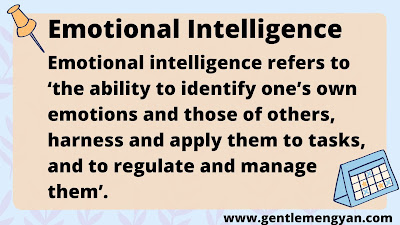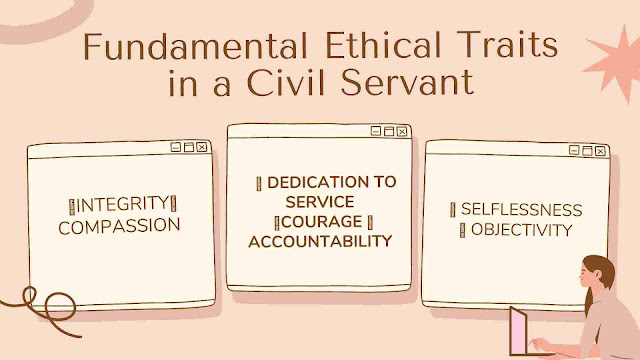Emotional Intelligence UPSC | Ethics | GS-4

Emotional Intelligence (Ethics) | UPSC Topic: GS Paper - 4 Ethics and Human Interface | Emotional intelligence "Anybody can become angry, that is easy; but to be angry with the right person, and to the right degree, and at the right time, and for the right purpose, and in the right way, that is not within everybody’s power, that is not easy." —Aristotle What is Emotional Intelligence (EI) ? The term was coined by two researchers – Peter Salovey and John Mayer in 1990 however it went popular in 1996 from Daniel Goleman’s book ‘ Emotional Intelligence: Why It Can Matter More Than IQ’. Emotional Intelligence: Emotional intelligence refers to ‘the ability to identify one’s own emotions and those of others, harness and apply them to tasks, and to regulate and manage them’. Emotional Quotient (EQ) is a measure of one’s EI i.e. through a standardized test, one’s awareness of emotions in relation to self and others is known. Four Different Areas of EI (Mayer & Salovey Ability Mo...
.jpg)
